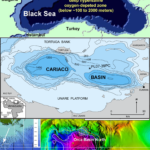When California announces anything to do with automobiles we tend to sit up and take notice. The state has a history of firsts. But the 2035 ban on new cars powered by gasoline is not unique to California. Many jurisdictions have put milestone ban dates in place. Many are far more aggressive than California in setting milestone end dates for gasoline-powered cars and trucks. Here’s the list in alphabetical order.
-
Austria in 2027.
-
Belgium in 2026.
- Canada, with British Columbia setting a 2040 date, and Quebec 2035.
- Cape Verde in 2035.
- China in 2040 including Hong Kong which may invoke the ban as early as 2030.
- Costa Rica in 2050.
-
Denmark in 2030, and an end date for hybrids in 2035.
-
Egypt to go 100% electric by 2040.
-
France in 2040.
-
Germany in 2030.
-
Iceland with the capital, Reykjavik planning to cut gasoline fueling stations by half by 2025, and a ban in 2030.
-
India to go 100% EV beginning in 2030, and plans to eliminate gasoline-powered 2 and 3-wheeled vehicles beginning in 2025.
-
Ireland in 2030.
-
Israel in 2030.
-
Japan in 2035.
-
Korea (South) in 2025.
-
The Netherlands in 2030 with Amsterdam banning all fossil-fuel-powered vehicles from its streets by 2030.
-
Norway in 2025 and the current leader with 60% of all new car sales being EVs.
-
Portugal in 2040.
- Scotland in 2032.
- Singapore in 2040.
-
Slovenia in 2030.
-
Spain in 2040.
-
Sri Lanka in 2040.
-
Sweden in 2030.
-
Taiwan in 2040.
-
Thailand in 2040.
-
The United Kingdom, not including Scotland, in 2030 and with the city of Bristol looking at restricting the operation of diesel-powered vehicles in the very near future.
In the United States, the States of Washington and New York have set 2030 and 2035 respectively as the end dates for the sale of fossil-fuel-powered vehicles.
But California, the first jurisdiction to pass emission and mileage standards on vehicles in the past, had not leaped into the banning of gasoline-powered vehicles camp until today. The California Air Resources Board announced that 100% of all new cars being sold in the state will be non-fossil-fuel-burning. Currently, the target is 12%. By 2026 it will rise to 35%. And by 2030 to 68%.
California is the largest market for new vehicle sales in the U.S., so these targets will have a significant impact on the automotive industry in the country and abroad. And California’s influence is expected to affect five other U.S. states almost immediately and seven more ti follow thereafter in enacting similar targets. These 13 states in total represent a third of U.S. automobile sales.
There is another distinction between California’s latest announcement and those made by other jurisdictions. None of the others have laid out milestone dates and targets this specific. The mandates for most, Norway the exception, are aspirational at the moment.
And California is expected in parallel with its emission-free targets to up the mileage and pollution standards which will likely lead to the Environmental Protection Agency (EPA) following in lockstep for the entire country in 2023.
These aggressive moves come just a week after the signing of The Inflation Reduction Act with hundreds of billions earmarked for nationwide climate change mitigation and adaptation programs and projects.
No doubt, there will be court challenges to California and the federal government’s policy announcements. But American opinion is shifting related to tackling climate change issues. In a July 2022 poll taken before the Supreme Court ruled that the EPA was exceeding its jurisdictional authority on emissions coming from coal-fired power plants, Americans expressed interesting views on climate change issues such as the one related to the banning of new sales of gasoline-powered vehicles. The polling results that follow represent a national snapshot before a sudden spike in gasoline and diesel fuel prices.
- 55% opposed phasing out production of gasoline-powered cars and trucks by 2035 while 43% approved.
- 42% were more likely to purchase an EV in the near future.
- 53% viewed the passing of stricter environmental laws as a necessity.
The New York Times today, in announcing the new California policy along with the latest federal legislation, noted that the combination of the two will likely represent an important milestone in the U.S. effort to eliminate carbon emissions.
And because of California’s larger impact, both nationally and globally will also influence many other jurisdictions to accelerate efforts to move away from gasoline and diesel-powered transportation and into EVs and other zero-emission options.
What remains to be addressed, however, are the security of supply around the materials needed to support the manufacturing of EVs in even greater numbers, and a rapid buildout of fast charging networks in the U.S. and around the world.
And finally, the automotive industry has to address the issue of affordability. EV models today without government subsidies are unaffordable to the majority of Americans and families in other countries.
With Gen Y and Z wanting access to vehicles more than ownership, the industry needs to explore new ways of getting people into EVs.
Recently, I wrote about transportation-as-a-service being considered as a way to reduce EV costs for consumers. And in another posting, I described a company starting to offer Tesla EVs by subscription.
















